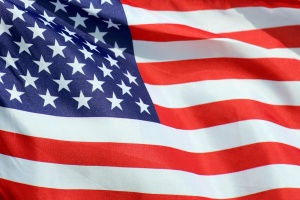Islam: The “Other” Religion in American Politics
March 2nd, 2016
 The United States has been considered a Christian country for most of its history. It was not until the 1960s, however, that religion and politics became almost inextricably entwined. When the country’s first Catholic president took his oath of office, he did so despite the extreme pressure from opponents during his run who ran smear campaigns against him based on religion. Then came the “Moral Majority” push of the 1970s that catapulted religion into the forefronts of voting America’s collective thought processes.
The United States has been considered a Christian country for most of its history. It was not until the 1960s, however, that religion and politics became almost inextricably entwined. When the country’s first Catholic president took his oath of office, he did so despite the extreme pressure from opponents during his run who ran smear campaigns against him based on religion. Then came the “Moral Majority” push of the 1970s that catapulted religion into the forefronts of voting America’s collective thought processes.
Throughout all the religious-political crises seen by Americans through the decades, citizens of other religions were present but merely as spectators. Since the attacks of 9/11, however, this has shifted to bring one religion (Islam) into the political fray as the proposed antithesis of the United States’ Christian roots. The truth, however, is that people of Muslim faith have been a part of American society since the earliest days of our founding, even if current politicians seem to selectively remember our history.
Religious Land of Opportunity
People seeking refuge from religious oppression have sought North America’s rugged promise of freedom long before the United States declared its independence in 1776. Some historians argue that some of the first travelers to the continent included Spanish Moors, who were Muslim, and whose accounts guided other more well-known explorers to our eastern shores. Then, when the Constitution was created to guide generations of American leaders, provisions were specifically included that protected citizens of a variety of religions. This was not to be a country of only Christian faith as all who worshipped within America’s boundaries were free to do so without governmental persecution.
Unfortunately, many religious groups soon found themselves to be considered “fringe” groups and did face strong opposition from the American people even if they were merely branches of the same dominant religion. Followers of the Mormon religion, for example, faced opposition and persecution throughout the early days of their religion and were forced to continue marching westward until they found a land unoccupied by their other Christian rivals. Other individuals found themselves being judged harshly based on the perceptions of others, despite their religious beliefs being the same as their persecutors.
Islam, the New Persecution
American politicians are now focusing their religious judgment on followers of Islam by attributing the terrible actions of members of Muslim fringe groups on the majority, despite reports and studies showing that this is an unfair comparison. To combat this prejudice, one Imam has taken a proactive approach and invited arguably the most outspoken anti-Muslim politician to visit and speak with actual American Muslims rather than base his sentiment on false stereotypes and fear. We will continue to monitor the political atmosphere surrounding Islam in the United States in order to ensure that the religious freedom promised by our Constitution remains intact.



I think people will always argue over religious differences. Many religions claim to worship “The One True God.” Hearing a lot about this as a child, one day I asked my mother “MA.. what religion is GOD?” She replied that there was one God, and people worshipped the Creator of the Universe, each in their own way. That was in the mid 1950s. I’m 71 now, and I still think that’s a good way to think about it.
I often think of what we are taught and exposed to growing up. Recently I thought, what if I had never been taken to a Christian church or any church and never had any personal interaction with the Christian faith? How would I have reacted to it as an adult minus those experiences and what would my opinions be. I accept and welcome anyone who believes in the human rights of all persons whether they are persons of faith or no. As long as they are persons of good will. We must focus on what we have in common rather than on that which separates us. We must practice respect and tolerance.